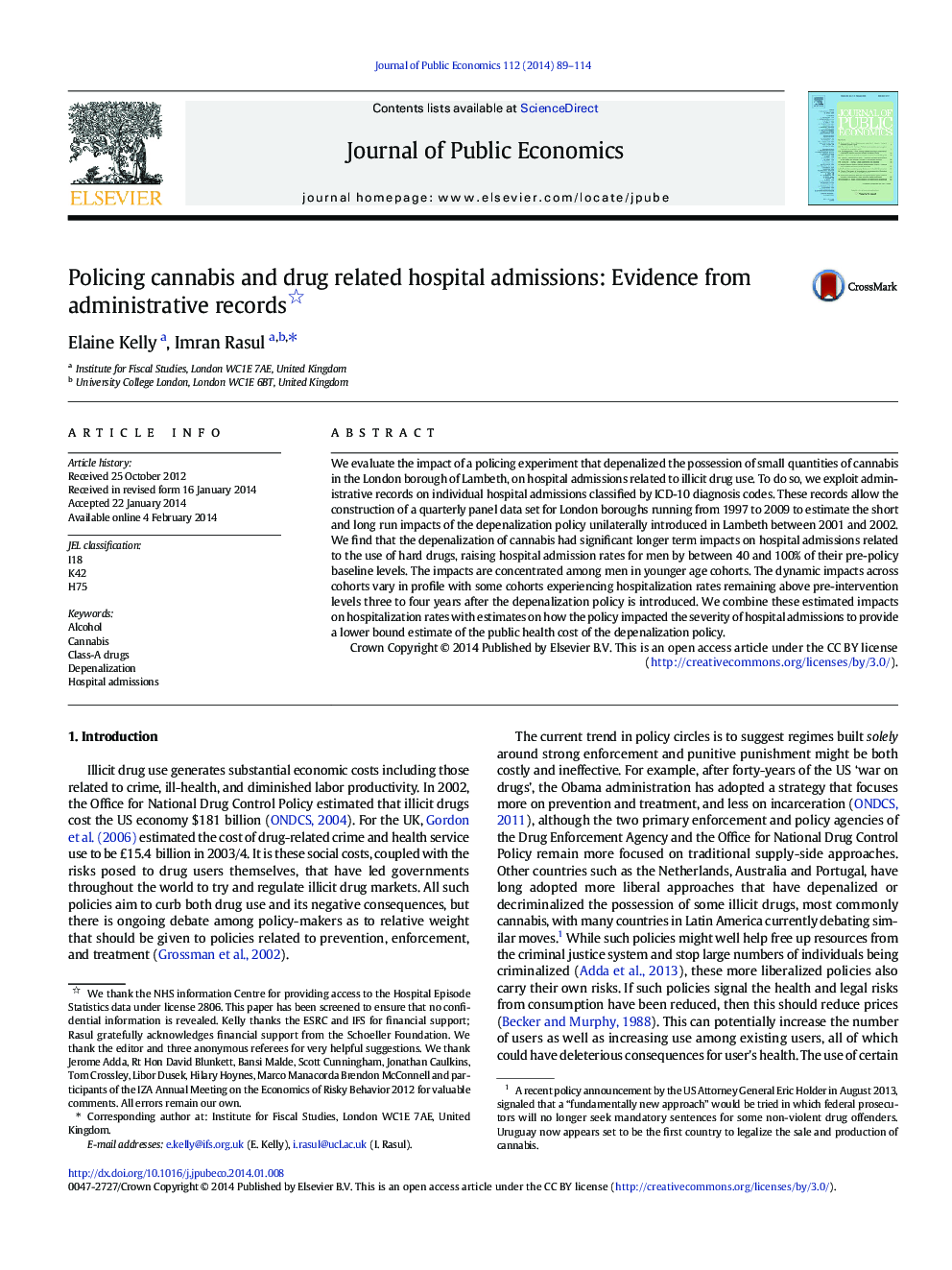| Article ID | Journal | Published Year | Pages | File Type |
|---|---|---|---|---|
| 7370402 | Journal of Public Economics | 2014 | 26 Pages |
Abstract
We evaluate the impact of a policing experiment that depenalized the possession of small quantities of cannabis in the London borough of Lambeth, on hospital admissions related to illicit drug use. To do so, we exploit administrative records on individual hospital admissions classified by ICD-10 diagnosis codes. These records allow the construction of a quarterly panel data set for London boroughs running from 1997 to 2009 to estimate the short and long run impacts of the depenalization policy unilaterally introduced in Lambeth between 2001 and 2002. We find that the depenalization of cannabis had significant longer term impacts on hospital admissions related to the use of hard drugs, raising hospital admission rates for men by between 40 and 100% of their pre-policy baseline levels. The impacts are concentrated among men in younger age cohorts. The dynamic impacts across cohorts vary in profile with some cohorts experiencing hospitalization rates remaining above pre-intervention levels three to four years after the depenalization policy is introduced. We combine these estimated impacts on hospitalization rates with estimates on how the policy impacted the severity of hospital admissions to provide a lower bound estimate of the public health cost of the depenalization policy.
Related Topics
Social Sciences and Humanities
Economics, Econometrics and Finance
Economics and Econometrics
Authors
Elaine Kelly, Imran Rasul,
